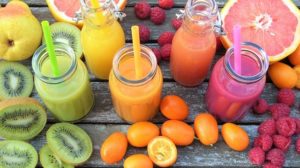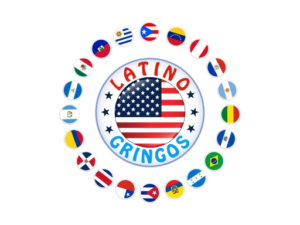13 Foods That Help the Immune System
Want to boost your immune system? Plan your meals to include these 13 powerful immune system boosters. Here at Latino Gringos ™ we show you how to give your immune system that extra boost to strengthen and fight diseases naturally.
Vitamin C is thought to increase the production of white blood cells. These are key to fighting infections. Check out these 13 foods rich in vitamins known to give a boost to your immune system.
Citrus Fruits
If you think citrus fruits have the most vitamin C of any fruit or vegetable, think again. Ounce for ounce, red bell peppers contain twice as much vitamin C as citrus. They’re also a rich source of beta carotene. Besides boosting your immune system, vitamin C may help maintain healthy skin. Beta carotene helps keep your eyes and skin healthy.
Popular citrus fruits include:
- grapefruit
- oranges
- tangerines
- lemons
- limes
- clementine’s
- Vitamin C. Because your body doesn’t produce or store it, you need daily vitamin C for continued health. Almost all citrus fruits are high in vitamin C. With such a variety to choose from, it’s easy to add a squeeze of this vitamin to any meal.
- Broccoli. Broccoli is supercharged with vitamins and minerals. Packed with vitamins A, C, and E, as well as many other antioxidants and fiber, broccoli is one of the healthiest vegetables you can feed your family. The key to keeping its power intact is to cook it as little as possible — or better yet, not at all.
- Garlic. Garlic is found in almost every cuisine in the world. It adds a little zing to food and it’s a must-have for your health. Early civilizations recognized their value in fighting infections. Garlic may also help lower blood pressure and slow down the hardening of the arteries. Garlic’s immune-boosting properties seem to come from a heavy concentration of sulfur-containing compounds, such as allicin.
- Ginger.Ginger is another ingredient many turns to after getting sick. Ginger may help decrease inflammation, which can help reduce a sore throat and other inflammatory illnesses. Ginger may also help decrease nausea.While it’s used in many sweet desserts, ginger packs some heat in the form of gingerol, a relative of capsaicin. Ginger may help decrease chronic pain and may possess cholesterol-lowering properties, according to a recent animal.
- Spinach
Spinach made our list not just because it’s rich in vitamin C. It’s also packed with numerous antioxidants and beta carotene, which may increase the infection-fighting ability of our immune systems. Similar to broccoli, spinach is healthiest when it’s cooked as little as possible so that it retains its nutrients. However, light cooking enhances its vitamin A and allows other nutrients to be released from oxalic acid.
- Almonds
When it comes to preventing and fighting off colds, vitamin E tends to take a backseat to vitamin C. However, the key to a healthy immune system. Vitamin C is a fat-soluble vitamin meaning it requires the presence of fat to be absorbed properly. Nuts, such as almonds, are packed with the vitamin and also have healthy fats. A half-cup serving, which is about 46 whole, shelled almonds, provides nearly 100 percent of the recommended daily amount of vitamin E.
- Turmeric
You may know turmeric as a key ingredient in many curries. But this bright yellow, bitter spice has also been used for years as an anti-inflammatory in treating both osteoarthritis and rheumatoid arthritis. Also, shows that high concentrations of curcumin, which gives turmeric its distinctive color, can help decrease exercise-induced muscle damage.
- Green Tea
Both green and black teas are packed with flavonoids, a type of antioxidant. Where green tea really excels is in its levels of epigallocatechin gallate, or EGCG, another powerful antioxidant. EGCG has been shown to enhance immune function. The fermentation process black tea goes through destroys a lot of the EGCG. Green tea, on the other hand, is steamed and not fermented, so the EGCG is preserved.
Green tea is also a good source of the amino acid L- theanine. L-theanine may aid in the production of germ-fighting compounds in your T-cells.
- Papaya
Papaya is another fruit loaded with vitamin C. You can find 224 percent of the daily recommended amount of vitamin C in a single papaya. Papayas also have a digestive enzyme called papain that has anti-inflammatory effects.
Papayas have decent amounts of potassium, B vitamins, and folate, all of which are beneficial to your overall health.
- Kiwi
Like papayas, Kiwis are naturally full of a ton of essential nutrients, including folate, potassium, Vitamin K and vitamin C. Vitamin C boosts white blood cells to fight infection, while kiwi’s other nutrients keep the rest of your body functioning properly.
- Sunflower Seeds
Sunflower seeds are full of nutrients, including phosphorus, magnesium, and vitamin B-6. They’re also incredibly high in vitamin E, a powerful antioxidant.
- Avocados & Dark Leafy Greens
Vitamin E is important in regulating and maintaining immune system function. Other foods with high amounts of vitamin E include avocados and dark leafy greens.
- Red Bell Peppers
If you think citrus fruits have the most vitamin C of any fruit or vegetable, think again. Ounce for ounce, red bell peppers contain twice as much vitamin C as citrus. They’re also a rich source of beta carotene. Besides boosting your immune system, vitamin C may help maintain healthy skin. Beta carotene helps keep your eyes and skin healthy.
We at Latino Gringos ™ know that eating a low-fat, plant-based diet may help give the immune system a boost. The immune system relies on white blood cells that produce antibodies to combat bacteria, viruses, and other invaders. Vegetarians have been shown to have more effective white blood cells when compared to nonvegetarians, due to a high intake of vitamins and low intake of fat.
If you like this article, have a comment or suggestion for us, please comment below or send us a message. We would love to hear from you!
To see more articles about these topics or others, keep coming back to Latino Gringos™. Make sure to follow us on our Instagram or Facebook to know when we upload new articles or videos.
If you know anyone that might benefit from our articles, even if they are not Latino, please share it with them. We love our Latino community, but also like helping anyone that needs it.
13 Alimentos que ayudan al sistema inmunológico
¿Quieres reforzar tu sistema inmunológico? Planifica tus comidas para incluir estos 13 poderosos potenciadores del sistema inmunológico. Aquí en Latino Gringos ™ te mostramos como darle a tu sistema inmunológico ese impulso extra para fortalecer y combatir las enfermedades naturalmente.
Se cree que la vitamina C aumenta la producción de glóbulos blancos. Estos son la clave para combatir las infecciones. Mira estos 13 alimentos ricos en vitaminas que se sabe que dan un impulso necesario a tu sistema inmunológico.
Frutas cítricas
Si crees que los cítricos tienen más vitamina C que cualquier otra fruta o vegetal, piénsalo de nuevo. Onza por onza, los pimientos rojos contienen el doble de vitamina C que los cítricos. También son una fuente rica en betacaroteno. Además de estimular el sistema inmunológico, la vitamina C puede ayudar a mantener la piel sana. El betacaroteno ayuda a mantener los ojos y la piel sanos.
Las frutas cítricas más populares incluyen:
- pomelo
- Naranjas
- mandarinas
- limones
- limas
- Vitamina C. Como tu cuerpo no la produce ni la almacena, necesitas vitamina C diariamente para mantenerte sano. Casi todos los cítricos tienen un alto contenido de vitamina C. Con tal variedad para elegir, es fácil añadir un poco de esta vitamina a cualquier comida.
- Brócoli. El brócoli está sobrecargado de vitaminas y minerales. Lleno de vitaminas A, C y E, así como de muchos otros antioxidantes y fibra, el brócoli es uno de los vegetales más saludables que puede alimentar a su familia. La clave para mantener su poder intacto es cocinarlo lo menos posible, o mejor aún, no hacerlo.
- El ajo. El ajo se encuentra en casi todas las cocinas del mundo. Añade un poco de sabor a la comida y es imprescindible para la salud. Las primeras civilizaciones reconocieron su valor en la lucha contra las infecciones. El ajo también puede ayudar a bajar la presión sanguínea y retrasar el endurecimiento de las arterias. Las propiedades inmunológicas del ajo parecen provenir de una gran concentración de compuestos que contienen azufre, como la alicina.
- Jengibre. El jengibre es otro ingrediente al que muchos recurren después de enfermarse. El jengibre puede ayudar a disminuir la inflamación, lo que puede ayudar a reducir el dolor de garganta y otras enfermedades inflamatorias. El jengibre también puede ayudar a disminuir las náuseas. Aunque se usa en muchos postres dulces, el jengibre contiene algo de calor en forma de gingerol, un pariente de la capsaicina. El jengibre puede ayudar a disminuir el dolor crónico y puede poseer propiedades reductoras del colesterol, según un animal reciente.
- Espinacas. Las espinacas no sólo están en nuestra lista porque son ricas en vitamina C. También están llenas de numerosos antioxidantes y betacaroteno, que pueden aumentar la capacidad de nuestro sistema inmunológico para combatir las infecciones. Al igual que el brócoli, las espinacas son más saludables cuando se cocinan lo menos posible para que conserven sus nutrientes. Sin embargo, la cocción ligera aumenta su vitamina A y permite que se liberen otros nutrientes del ácido oxálico.
- Almendras. Cuando se trata de prevenir y combatir los resfriados, la vitamina E tiende a pasar a un segundo plano con respecto a la vitamina C. Sin embargo, la clave para un sistema inmunológico saludable. La vitamina C es una vitamina soluble en grasa, lo que significa que requiere la presencia de grasa para ser absorbida adecuadamente. Los frutos secos, como las almendras, están llenos de esta vitamina y también tienen grasas saludables. Una ración de media taza, que es de unas 46 almendras enteras sin cáscara, proporciona casi el 100 por ciento de la cantidad diaria recomendada de vitamina E.
- Cúrcuma. Puede que sepas que la cúrcuma es un ingrediente clave en muchos curries. Pero esta especia amarilla y amarga también se ha utilizado durante años como antiinflamatorio en el tratamiento de la osteoartritis y la artritis reumatoide. Además, muestra que altas concentraciones de curcumina, que le da a la cúrcuma su color distintivo, pueden ayudar a disminuir el daño muscular inducido por el ejercicio.
- Té verde. Tanto el té verde como el negro están llenos de flavonoides, un tipo de antioxidante. Donde el té verde realmente sobresale es en sus niveles de galato de epigalocatequina, o EGCG, otro poderoso antioxidante. Se ha demostrado que el EGCG mejora la función inmunológica. El proceso de fermentación por el que pasa el té negro destruye gran parte del EGCG. El té verde, por otro lado, se cuece al vapor y no se fermenta, por lo que el EGCG se conserva. El té verde también es una buena fuente del aminoácido L-teanina. La L-teanina puede ayudar en la producción de compuestos que combaten los gérmenes en las células T.
- Papaya La papaya es otra fruta cargada de vitamina C. Se puede encontrar el 224 por ciento de la cantidad diaria recomendada de vitamina C en una sola papaya. Las papayas también tienen una enzima digestiva llamada papaína que tiene efectos antiinflamatorios. Las papayas tienen cantidades decentes de potasio, vitaminas B y folato, todos ellos beneficiosos para su salud en general.
- Kiwi Al igual que las papayas, los kiwis están naturalmente llenos de una tonelada de nutrientes esenciales, incluyendo folato, potasio, vitamina K y vitamina C. La vitamina C estimula los glóbulos blancos para combatir las infecciones, mientras que los otros nutrientes del kiwi mantienen al resto del cuerpo funcionando adecuadamente.
- Semillas de girasol. Las semillas de girasol están llenas de nutrientes, incluyendo fósforo, magnesio y vitamina B-6. También son increíblemente altas en vitamina E, un poderoso antioxidante.
- Aguacates y hojas verdes oscuras. La vitamina E es importante para regular y mantener la función del sistema inmunológico. Otros alimentos con altas cantidades de vitamina E son los aguacates y las verduras de hoja oscura.
- Pimientos rojos. Si crees que los cítricos tienen más vitamina C que cualquier otra fruta o vegetal, piénsalo de nuevo. Onza por onza, los pimientos rojos contienen el doble de vitamina C que los cítricos. También son una fuente rica en betacaroteno. Además de estimular el sistema inmunológico, la vitamina C puede ayudar a mantener la piel sana. El betacaroteno ayuda a mantener los ojos y la piel sanos.
Nosotros en Latino Gringos ™ sabemos que comer una dieta baja en grasas y basada en vegetales puede ayudar a darle un impulso al sistema inmunológico. El sistema inmunológico depende de los glóbulos blancos que producen anticuerpos para combatir las bacterias, virus y otros invasores. Se ha demostrado que los vegetarianos tienen glóbulos blancos más eficaces en comparación con los no vegetarianos, debido a un alto consumo de vitaminas y un bajo consumo de grasa.
Si le gusta este artículo, tiene un comentario o sugerencia para nosotros, por favor comente a continuación o envíenos un mensaje. ¡Nos encantaría saber de usted!
Para ver más artículos sobre estos temas u otros, siga visitando Latino Gringos ™. Asegúrese de seguirnos en nuestro Instagram o Facebook para saber cuándo cargamos nuevos artículos o videos.
Si conoces a alguien que pueda beneficiarse de nuestros artículos, incluso si no son latinos, compártelo con ellos. Amamos a nuestra comunidad latina, pero también nos gusta ayudar a cualquiera que la necesite.








